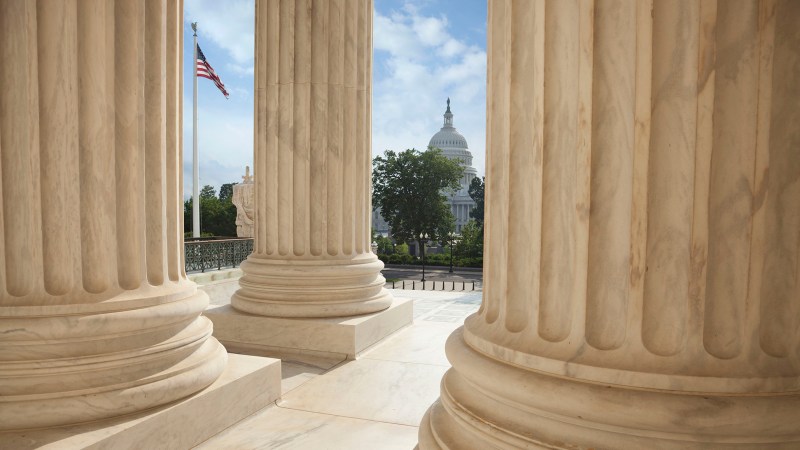
In my homepage article on the constitutionality of holding an impeachment trial of a former president, I mention in passing that former judge Michael Luttig thinks that if one were to happen, the former president would bring a constitutional challenge and the Supreme Court would be very likely to side with him.
His confidence on that point is based on his view that the Constitution “clearly” forbids impeachments of former officials, a view that my article gives reasons for rejecting. Here I want to note that even Supreme Court justices who think Luttig has a strong case might well decide to give Congress the last word on the question anyway.
To get a sense of what a prior Court thought about getting involved in impeachment, we should consult the Nixon impeachment case. No, not that Nixon: It’s the case of the impeachment of federal district court judge Walter Nixon, which came before the Supreme Court in 1993. Chief Justice William Rehnquist is emphatic that Nixon’s objections to the manner of his impeachment trial were “nonjusticiable.” At one point he writes, “The parties do not offer evidence of a single word in the history of the Constitutional Convention or in contemporary commentary that even alludes to the possibility of judicial review in the context of the impeachment powers.” It doesn’t get much less scathing from there: “Judicial involvement in impeachment proceedings, even if only for purposes of judicial review, is counterintuitive because it would eviscerate the ‘important constitutional check’ placed on the Judiciary by the Framers.”
In 2019, Alan Dershowitz tried to use the case to support the contention that the Supreme Court might jump in to protect President Trump from an impeachment trial. He leaned on Justice David Souter’s concurrence in the case. But Souter, writing only for himself, was saying only that he wouldn’t draw an absolute line against judicial involvement:
One can, nevertheless, envision different and unusual circumstances that might justify a more searching review of impeachment proceedings. If the Senate were to act in a manner seriously threatening the integrity of its results, convicting, say, upon a coin toss, or upon a summary determination that an officer of the United States was simply “a bad guy,” judicial interference might well be appropriate (internal citation omitted).
Even Souter wasn’t opening the door very far. (In his book making the case against impeaching Trump, Dershowitz uses ellipses from “results” to “judicial interference,” which obscures just how extreme a hypothetical situation the justice had in mind.) Justices Byron White and Harry Blackmun, meanwhile, suggested that the Court might intervene if the Senate convicted an official without holding a trial at all.
None of these three justices challenged the conventional view that Congress deserves great deference on how to conduct an impeachment.
It is easy to see why the Supreme Court might not want to second-guess a bipartisan decision by the Senate to convict a president — which is the context in which it would be reviewing a case. It would have precedent to cite for staying out. And, finally, if it decided late impeachment was an issue for it to judge, it would also have reasons for concluding either that the Constitution allows it or that it’s a close question on which the Congress deserves deference.

